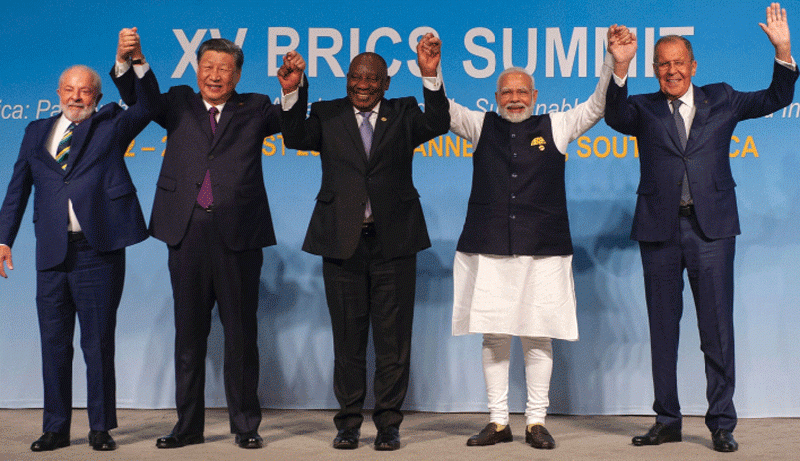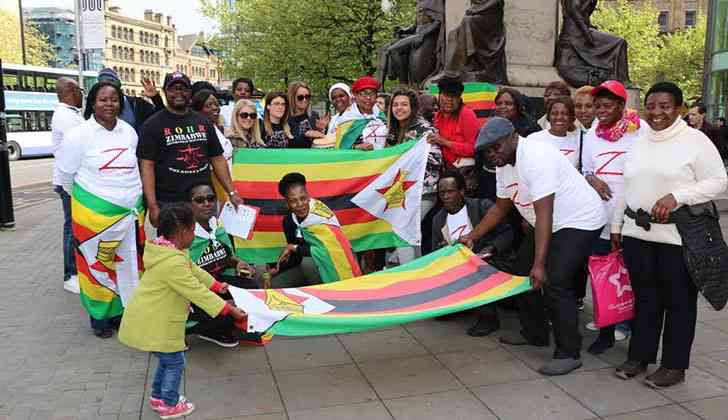
IT was a busy week with two major global events taking place across the Atlantic Ocean to discuss global trading and the economy. The 16th BRICS summit concluded in Kazan, Russia, on October 24, while the Bretton Woods meetings ended in Washington, USA, yesterday.
Despite the political and ideological differences, there is growing consensus about the need to work together to achieve global prosperity.
The 16th BRICS Summit started on October 22. BRICS, which at its onset included Brazil, Russia, India, China and South Africa in 2019, has now expanded after accepting Iran, Egypt, Ethiopia, the United Arab Emirates and Saudi Arabia with Azerbaijan, Malaysia, Turkey and others on the waiting list having expressed their interest to join the group. Altogether, the 16th BRICS summit was attended by leaders and representatives of 36 countries putting to bed the notion that Russia is isolated.
The world is facing genuine global trading issues that have triggered the growth, interest and influence of the BRICS. While it started as a group of emerging economies to explore trade partnerships, it has grown into a potential policymaker and shaker in the face of growing economic restrictions by the United States of America and its allies.
In his concluding remarks, Russia’s President Vladimir Putin described the 16th BRICS summit as “the largest foreign policy event ever held” in his country and noted that the establishment of a new "multipolar world order" was on course, irreversible and unstoppable. While this may sound like a political chant, it is out of global necessity to have a new multipolar system.
Putin’s claim may be right when one looks at the fact that most of the big economies — both old and new — that attended the BRICS summit are reeling from the effects of sanctions by the US and its Western allies. They see the need to liberate themselves from the hegemonic behaviour of the US. BRICS, once it defines its ideological and operational position, has a huge potential to stimulate many stifled economies.
The launch of the BRICS symbolic banknote by Putin has sparked discussions and sent shock waves as it threatens the dominance of the US dollar, which is central in global trade. The US dollar has been one of the tools used to advance the US and its allies’ political interests. Today, about 10% of countries in the world are stifled by US sanctions. The US dollar was increasingly becoming a political tool thus disruptive to global trade.
Across the Atlantic Ocean, finance ministers and central bank governors arrived in Washington, USA for the annual meetings of the International Monetary Fund (IMF) and the World Bank from October 25 to 27 October. Again, central to these Bretton Woods institutions’ agenda is the desire to re-engage and work together to achieve mutual prosperity. That is an acknowledgment of a growing disconnect that requires countries to be ushered back together.
- COP27: UAE and Egypt agree to build one of world's biggest wind farms
- COP27: A glass half full
- Zim’s Rugby Ref of the Year Pazani reflects on “amazing” year
- Raza strikes IPL gold
Keep Reading
Most, if not all attendees, of these IMF-WB meetings, are appointees who may be apprehensive to delve into how the political behaviour of the US and its allies is interfering with global trade. Those who were brave enough noted the important role of the USA in the multilateral system while highlighting how its capricious sanction tendencies have become a risk to the global economy, the Western influence and their relationship with other blocs.
These sentiments seem to emanate from the European Union (EU) bloc, some of whose members feel that the US is dragging them to matters that have nothing to do with them. Part of the EU’s approach is to embrace emerging economies rather than view them as a threat. Some even argue that if the USA insists on that trajectory, they can go it alone with their selfish and protectionist policies which may see them globally isolated.
It might be too early to assess how the discussions from these two gatherings will steer the world but there are several factors to consider. BRICS is new, rising and relevant but the recent summit was attended by high-level representatives, an indication of the seriousness of the agenda.
Most of those who are already members of the BRICS Plus expect the group to start work as soon as possible. They are tired of the US tendencies. Beyond the barriers presented by the American dominance in the global trading system, they can do massive business among themselves.
On the other hand, the IMF-WB meetings were attended by junior-level appointed technocrats whose influences on global political policies are limited to recommendations. But the two institutions combined still have a massive influence on global trade and economies which far outweighs that of
BRICS.
They can, with the approval of their principals, start to splash loans and aid to developing countries and bring them back to their fold. However, a common message from the two meetings is the need for the world to work together. It is only the US that is not hearing and seeing this.










